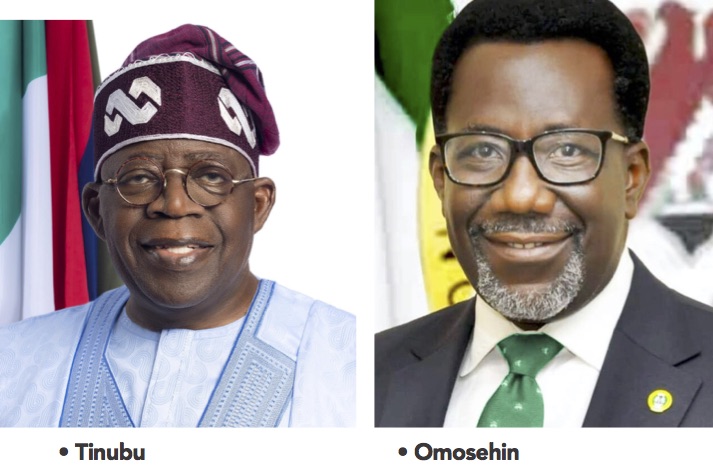Sixty-five after independence, Nigeria’s insurance industry is still struggling to shake off a legacy of distrust, accentuated by undelivered promises and outdated laws.
But with fresh reforms and stronger regulation, hopes are rising that the sector may yet reclaim its place as a pillar of the economy.
Insurance in Nigeria dates back to the colonial era when British insurance companies began to operate in the country. In 1921, the first Nigerian insurance company, Royal Exchange Assurance Company, was established, followed by other local and foreign insurance companies.
Historians recall that Nigerians once eagerly embraced insurance, with long queues of people waiting to purchase policies. Yet, decades later, the industry remains one of the most underdeveloped sectors of the economy, contributing only a negligible fraction to the nation’s GDP, despite its critical role as a backbone for the survival of other sectors.
Experts in Nigeria’s insurance sector believe the industry has what it takes to stand shoulder to shoulder with the banking sector if all hands are on deck. The opportunities, they insist, are vast and promising, but persistent challenges such as low awareness, weak regulation, public distrust, and complex policy terms continue to hold it back. Despite spirited campaigns by industry stakeholders, the media, and enthusiasts to tackle these barriers, the recurring issues of low penetration and trust deficit remain at the heart of the problem.
Looking back, industry veterans argue that insurance once enjoyed strong public confidence and widespread patronage. They are optimistic it can bounce back. Echoing this sentiment, the Commissioner for Insurance, Mr. Olusegun Ayo Omosehin, told insurance journalists at a recent seminar: “Nigerians had at one time trusted insurance business until it was betrayed by some elements. Nevertheless, my administration will ensure that the lost glory is restored glaringly.”
Omosehin expressed confidence that the industry is now technically and financially fit to meet client needs. He called on individuals and corporate players, particularly in oil, gas, and aviation, to patronise local insurers more robustly. He highlighted recent industry payouts of over N180 billion in claims, including N82.5 billion to indigenous petroleum firm Brittania-U, as proof that Nigerian insurers have the capacity to honor obligations.
The Commissioner also underscored the importance of recapitalisation, referencing the Nigerian Insurance Industry Reform Act (NIIRA), which prescribes a N10 billion minimum capital for life insurers, N15 billion for general business insurers, and N35 billion for reinsurance firms. With this framework in place, Omosehin declared: “It is high time insurance companies started disclosing claims payments publicly. People need to know, why shouldn’t they? We must correct the lingering but erroneous impression that insurers don’t pay genuine claims.”
Challenges remain, but reform is underway. For years, the sector struggled with low coverage rates, outdated practices, and slow digital adoption, earning it the unflattering label of “the weeping child of the financial industry.” Today, operators are embracing digital platforms, though gaps in infrastructure still hinder wider adoption. Economic pressures, from inflation to currency devaluation, also limit affordability, with many Nigerians prioritizing daily survival over insurance.
The turning point came in July 2025, when President Bola Tinubu signed NIIRA into law. The Act swept aside outdated legislations such as the Insurance Act of 2004 and the Marine Insurance Act, providing a comprehensive legal and regulatory framework for modern insurance practice. Analysts regard NIIRA as a game changer that will drive digital innovation, recapitalization, and customer-focused reforms aimed at improving service delivery and ensuring prompt settlement of genuine claims.
Omosehin is optimistic that these reforms will reposition the industry, enhance penetration, increase its contribution to GDP, create more jobs, and strengthen public confidence. Development economists also believe the sector is ripe with opportunities, from microinsurance and insurtech to fintech partnerships and rural outreach.
In his words: “With NIIRA in place, nothing should hold us back. Insurance must and will stand shoulder to shoulder with banking.”
Speaking on behalf of the Nigerian Insurers Association (NIA), its Director General, Mrs. Bola Odukale, said that as Nigeria marks its 65th independence anniversary, the nation’s insurance sector is at a defining moment. She described it as “a history of mixed performance, but also a new era of reform and potential.” Though long overshadowed by the more dominant banking sector, she believes the industry is on a fresh path to relevance.
According to her, insurance has always played a pivotal role in Nigeria’s financial ecosystem — providing risk protection, wealth preservation, and economic stability. “The industry is currently undergoing a period of significant transformation and accelerated growth, driven by regulatory reforms, increased public awareness, and rapid adoption of digital technology,” Odukale noted. She highlighted that in the fourth quarter of 2024, gross written premiums hit $1.05 billion, a year-on-year growth of 55.8%, with the momentum sustained into the first quarter of 2025.
She acknowledged, however, that the sector has been historically plagued by a legacy of unpaid claims, limited innovation, and a narrow focus on compulsory policies for corporate clients, leaving penetration stagnant at below 1% of GDP. While gross premium income rose beyond N2 trillion in late 2024 and industry assets stood at N3.857 trillion in early 2024, she stressed that such gains have yet to reflect in broader penetration.
“The current landscape is defined by the recently enacted Nigerian Insurance Industry Reform Act (NIIRA) 2025. This landmark legislation is a game-changer, introducing reforms on recapitalization, regulatory oversight, and consumer protection,” she said.
On the industry’s future, Odukale struck an optimistic tone, but warned that progress will depend on implementing reforms effectively. She pointed to technology, innovation, and financial inclusion as key drivers while citing persistent trust deficits, economic volatility, and youth disengagement as lingering hurdles. Asked if insurance could one day rival banking, she admitted the sector is still far behind. “The banking industry has a much deeper reach, larger asset base, higher penetration, and robust digital infrastructure. But with NIIRA and innovation, insurance is beginning to assume its growth potential,” she explained.
Looking ahead, she envisioned a landscape where insurance and banking would converge rather than compete directly. “In the near future, the competition between insurance companies and banks will be defined less by their traditional silos and more by convergence through technology, particularly FinTech and InsurTech,” she said. “Instead of a head-to-head battle, the two sectors will compete for customer mindshare and market share through innovative services, data-driven personalization, and a focus on customer experience.”
Also weighing in, Mr. Hanson Ufot, Head of Brand & Corporate Communications at Guinea Insurance Plc, said insurance remains an underappreciated pillar of the financial system. He described Nigeria’s 65th anniversary as an opportune moment to reflect on the industry’s progress and challenges. “Though penetration has remained low, there is a stronger focus on customer-centric solutions and building a culture where insurance is seen as a necessity rather than a legal obligation. To stand shoulder-to-shoulder with banking, the industry must accelerate innovation, strengthen trust, and deliver tangible value,” he said.
In a separate interview, Mr. Segun Bankole, Deputy General Manager, Corporate Communications & Investor Relations at Sovereign Trust Insurance Plc, recalled a time when insurance enjoyed wide public acceptance before being undermined by poor leadership. “In the past, insurance was like half a dime. In the 70s and 80s, there was proliferation of insurance companies until recapitalization in 2006-2007, which sent many under. It’s a long story,” he reflected. He added that NIIRA 2025 had renewed hope in the sector. “We believe we can get there, provided every stakeholder plays their role effectively. In the next decade, we shouldn’t still be telling the same story. Nigeria is nowhere yet among African peers, but we are very hopeful,” he assured.
Meanwhile, the industry’s reform narrative will gain a regional spotlight as Nigeria hosts the West African Insurance Companies Association (WAICA) Education Conference 2025 in Lagos from October 12-15. The event, themed “The West African Insurer in the Face of Climate Change,” will attract over 250 delegates.
Chairperson of the Local Organizing Committee and CEO of Rex Insurance Limited, Mrs. Ebelechukwu Nwachukwu, said climate risks like flooding and agricultural losses have worsened in West Africa, demanding stronger collaboration. “Climate risks are impacting economies across the subregion. The conference will provide a strategic platform for deliberations on the impact of climate change on insurance and actionable strategies to safeguard communities and economies,” she said.
Nwachukwu emphasized that African insurers must be proactive in offering innovative products to manage climate risks. “African insurers not only strengthen their collective preparedness but also position themselves competitively with global counterparts in shaping sustainable insurance practices,” she stressed.
She confirmed that Minister of State for Finance, Dr. Doris Uzoka-Anite, would deliver the keynote address, while Commissioner for Insurance, Mr. Olusegun Omosehin, would serve as chief host. Other key speakers include Dr. Abiba Zakaria, Acting Commissioner of Insurance, Ghana; Mr. Wole Oshin, GMD of Custodian Investment Plc; Mr. Bockarie Kaloko, Deputy Finance Minister of Sierra Leone; Ms. Tola Adegbayi, MD/CEO of Mutual Specialist; and Mr. Sunday Thomas, former Commissioner for Insurance in Nigeria.



